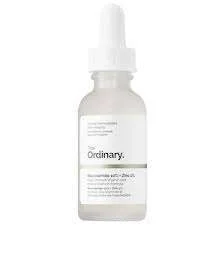The Ordinary Wholesale Supplier: Key Factors for a Successful Retail Business
Introduction
In today’s competitive beauty market, sourcing high-quality products at wholesale prices is crucial for retailers looking to build a profitable business. One of the most sought-after brands in the skincare industry is The Ordinary, known for its effective yet affordable formulations. Finding the ordinary wholesale supplier can be a game-changer for beauty retailers, enabling them to offer popular skincare products while maximizing profits. This article explores the key factors retailers should consider when choosing a supplier, how to establish a strong wholesale relationship, and strategies for long-term business success.
Understanding The Ordinary Brand and Market Demand
The Ordinary, a brand under DECIEM, has revolutionized the skincare industry with its transparency in ingredients, affordability, and high efficacy. As consumer demand for clean and science-backed skincare products continues to grow, retailers must capitalize on this trend by partnering with the ordinary wholesale supplier who can provide authentic products at competitive prices. Understanding market trends and customer preferences is the first step in building a successful retail business.
Furthermore, The Ordinary’s appeal extends to diverse customer segments, from skincare enthusiasts to dermatologists recommending the brand for specific concerns. The growing awareness around skincare ingredients like retinol, hyaluronic acid, and niacinamide has further boosted the brand’s market potential. Retailers must conduct thorough research on product demand, seasonal trends, and potential marketing strategies to enhance sales performance.
Key Factors in Choosing the Right Wholesale Supplier
Selecting the right the ordinary wholesale supplier is critical to maintaining product authenticity, competitive pricing, and seamless inventory management. Here are essential factors to consider:
1. Authenticity and Legitimacy
Counterfeit beauty products are a significant issue in the industry, and selling inauthentic skincare can damage a retailer’s reputation. Ensure that the supplier is authorized by DECIEM or has credible partnerships with official distributors. Checking certifications, customer reviews, and supplier credibility through industry references can help prevent counterfeit risks.
2. Pricing and Bulk Discounts
Competitive pricing is essential to maximize profit margins. Look for suppliers offering bulk discounts, seasonal promotions, and flexible payment terms to help your retail business stay competitive. Understanding the pricing structure and potential additional costs like shipping fees, import duties, and taxes can ensure profitability in the long run.
3. Reliable Shipping and Logistics
Timely delivery ensures that inventory is well-stocked to meet customer demand. Assess the supplier’s shipping options, delivery timelines, and their ability to handle international orders if required. Reliable logistics partners and real-time tracking can reduce delays and ensure customer satisfaction.
4. Minimum Order Quantities (MOQ)
Some suppliers require retailers to purchase a minimum quantity per order. Evaluate whether the MOQ aligns with your business’s financial capability and storage capacity. Small retailers may need to negotiate with suppliers for lower MOQ options to avoid overstocking.
5. Customer Support and Communication
A reputable wholesale supplier should offer excellent customer service, providing timely responses to inquiries, updates on order status, and support in case of product issues. Building a transparent and cooperative relationship with suppliers can improve efficiency and trust.
Establishing a Strong Business Relationship with Your Supplier
Building a successful retail business is not just about finding the ordinary wholesale supplier; it’s also about fostering a strong, long-term partnership. Here’s how retailers can maintain a productive relationship:
1. Clear Communication
Effective communication with suppliers ensures smooth transactions. Set expectations on product availability, pricing adjustments, and delivery timelines to avoid disruptions in business operations. Utilizing business communication tools like emails, video conferencing, and business management software can streamline interactions.
2. Consistent Order Placement
Regular orders help maintain a stable inventory and strengthen relationships with suppliers. It also positions you as a reliable business partner, potentially leading to better pricing and priority shipments. Analyzing sales data can help in making informed purchasing decisions.
3. Flexibility and Adaptability
Market trends change rapidly. Be open to adjusting order quantities and introducing new products based on consumer preferences and supplier recommendations. Keeping an eye on competitors and adapting to customer needs can create a competitive edge.
Strategies for Retail Business Success with The Ordinary Wholesale Supplier
Once a retailer secures a reliable the ordinary wholesale supplier, implementing effective strategies can boost sales and enhance business growth. Here are key approaches:
1. Leverage Digital Marketing
A strong online presence is essential for attracting customers. Utilize SEO, social media marketing, and email campaigns to promote The Ordinary products. Highlight their benefits, unique formulations, and affordability. Engaging customers through content marketing, such as skincare blogs, video tutorials, and expert recommendations, can enhance credibility.
2. Optimize Inventory Management
Stocking the right mix of The Ordinary products ensures that customers always find what they need. Use sales data to determine best-sellers and adjust stock levels accordingly. Automated inventory management systems can help track real-time stock updates and reduce stockouts or overstocking issues.
3. Competitive Pricing Strategies
Offer discounts, bundle deals, or loyalty programs to attract repeat customers. Staying competitive in pricing can help in gaining an edge over other retailers. Providing special promotions on festive occasions or product launches can further drive sales.
4. Educate Customers
Many consumers seek guidance on skincare routines and ingredient efficacy. Providing educational content through blogs, videos, or customer consultations can build trust and encourage purchases. Hosting webinars, offering personalized skincare recommendations, and collaborating with skincare experts can enhance brand credibility.
5. Expand Sales Channels
Beyond traditional retail stores, leverage e-commerce platforms like Amazon, Shopify, or social media marketplaces to reach a broader audience and increase sales. Expanding sales channels to global markets can also open new revenue streams and increase brand visibility.
Overcoming Common Challenges in Wholesale Skincare Retail
Despite the benefits of working with the ordinary wholesale supplier, retailers may encounter challenges such as fluctuating demand, supplier delays, and competition. Here’s how to tackle these challenges:
- Managing Demand Fluctuations: Forecasting sales trends and maintaining safety stock can prevent supply shortages.
- Handling Supplier Delays: Establish backup suppliers and communicate regularly to ensure timely deliveries.
- Standing Out in a Competitive Market: Offering exclusive deals, superior customer service, and value-added services can differentiate a retailer from competitors.
Conclusion
Finding and partnering with the ordinary wholesale supplier is a crucial step for retailers aiming to establish a successful business in the beauty industry. By focusing on authenticity, pricing, logistics, and customer relationships, retailers can ensure steady growth and profitability. Implementing strategic marketing, optimizing inventory, and providing value-added services will further enhance business success. As the demand for affordable and effective skincare continues to rise, retailers who align with the right wholesale supplier will gain a competitive advantage in the market.
For retailers looking to thrive in the beauty industry, continuous learning, adaptation to market trends, and strong supplier relationships will remain the key drivers of success. By staying proactive and innovative, businesses can ensure long-term sustainability and profitability in the competitive skincare market.



